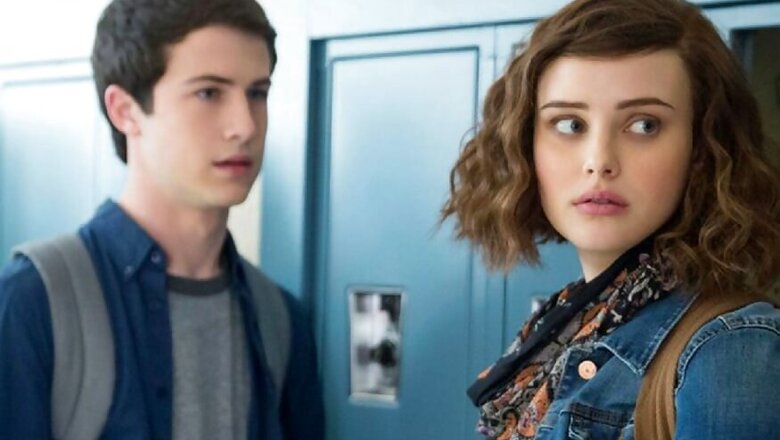
views
My 15-year-old daughter, while mature beyond her years, is like most other teenagers. She can be argumentative, with a sour disposition, often has her face buried in her phone, and, like most of her peers, loves a good Netflix series. Naturally, with all the hype surrounding Netflix’s, “13 Reasons Why” she jumped on the bandwagon last year and devoured the first season’s episodes in a weekend sequestered in her room.
Despite the show’s negative media attention and emails from her high school and various mental health newsletters to which I subscribe cautioning about allowing teens to watch the program, I did not prohibit her from seeing it. Do not get me wrong, I appreciated the warning and did heed the recommendation that I have a dialogue with her after watching because of its subject matter. I did not, however, take the advice to also view it so that I would be aware of what she would be seeing.
I could not bring myself to watch it. I am no stranger to the harsh realities of the show’s topic because, for the past 17 years, I have been parenting my son who has long battled depression and threatened suicide since he was 5 years old. This was not going to be a T.V. show that was going to enhance my life in any way and in the spare time I do have to entertain myself, this topic is not on my must-watch list.
When my daughter finished the first season, she talked to me about it. She shared about the final episode and how it affected her. She spoke more of the mother’s reaction and how difficult it was to watch and that she ultimately chose to fast forward through it — a luxury that we do not have in reality, I reminded her.

Image credits: Netflix
We talked about how the series handled the subject of suicide versus the reality of what it can be like facing it in your own home, as we have many times. I asked her about her thoughts on the criticism the show received in the media and by mental health professionals. Specifically, I mentioned the opinion by some that the series in some ways glamorized suicide and might ultimately make it more appealing to someone struggling with his/her mental health.
To my surprise, my daughter, who would normally scoff at such a suggestion as totally “blowing it out of proportion” and being “extra,” thought quietly for a moment and replied, “honestly, yeah, I can see how maybe it could if you were really struggling.”
We proceeded to have an open and candid conversation about depression and suicide and how we can support those we know that are struggling and the various resources available. All in all, I felt that perhaps the positive impact the series could have with respect to removing the stigma on the topic should not be discounted and was comfortable in my decision to allow her to watch it.
Recently, Netflix released Season 2 of the series and my daughter and her friends loyally retreated to their bedrooms to begin consuming its latest iteration. Again, the media was a buzz. Again, I received emails. One headline of an article that came to my inbox had said something to the effect of “Why No One Should Watch the Final Episode of ’13 Reasons Why.’”

As I read it, I felt a twinge of concern hit me, but quickly dismissed it. My daughter, having watched the first season, was mentally unscathed. My parents had finished the first season last week and my mother had just commented that she thought it was very well done and that I might actually enjoy it. I relaxed and figured the warnings and criticism were simply more hype. Until yesterday, that is.
On many weekends, I am fortunate that my daughter often chooses to accompany me on the variety of mundane errands that fill a weekend.
I have come to covet this time because in the hustle and bustle of school drop-offs, shuttling to cheer practice and social events, rushedly preparing dinner whilst providing assistance with homework (English only as I am useless where Math is concerned), we do not get much time to really connect and talk in depth. Our weekend excursions are where we are able to have meaningful conversations.
Yesterday, while in the car on our errands of the day, my daughter shared that she had finished the second season the night before. Nonchalantly, I inquired, “Oh, yeah? How was it?”
I expected one of the common canned responses one is accustomed to from a teen, like, “fine,” “good,” or “okay.” I was completely unprepared for what actually transpired.
Normally somewhat stoic and, as my daughter describes herself, “not the most sentimental or empathetic person,” I was surprised by the quivering tone in her voice as she confessed that the episode was “terrible” and “disturbing.” My stomach sunk and I immediately felt failure that I had not watched it so that I could warn her, or somehow protect her from whatever it was she had witnessed and salvage what little innocence she still possesses. But it was too late for that now.
I shared with her that I had seen something saying that no one should watch the final episode. To my surprise, she emphatically agreed that “No one should ever see it.”
I will not share the details of the events in the final episode to avoid any spoilers (and hate mail). I will, however, share that seeing my daughter actually cry (which she rarely ever does) as she relayed a scene so disturbing that she became physically ill and actually threw her phone, on which she was watching the episode, across the room was utterly heartbreaking.
I wanted to be able to tell her that it is just a show — that such evil does not exist in the real world. But she is old enough now to know that is not true. She has seen the news that this week alone reported two school shootings. As I listened to her voice quiver as she questioned how people can be so cruel to each other, how our actions and words can damage and break someone to the point they see no option but to end their life or to enter a school and end the lives of those who have inflicted such pain, I had no answers.
I could only reach out and hold her and tell her how proud I am of who she is and the choices she makes in how she treats others. I am so thankful that she feels she can come to me to ask hard questions, or to share with me when she is hurting and knows that she is never alone.
Am I sorry that let her watch it? Preventing her from watching might have spared a few tears, but the resulting conversation was certainly an important one. She will soon be an adult and responsible for addressing and perhaps solving some of the issues we now face as a society, so shielding her from it seems fruitless, maybe even irresponsible, at this point. It surrounds her now everywhere anyway.
What I do find myself questioning, however, is that while it is important to highlight these serious topics and discuss them, is it a mistake to categorize and pass them off as “entertainment?”
Perhaps portraying mental illness, violence, and the resulting consequences as an “entertaining” series is precisely why it is such a problem and why we are becoming so desensitized to it. Because in reality, it is far from entertaining. By using such heavy material for ratings and profit and cloaking it as a means to starting conversations, we might be doing ourselves and our children a serious disservice. For that, maybe we should all be sorry.
This story was first published on Medium.

















Comments
0 comment